No matter how "inevitable" a U.S. presidential candidate may seem, history shows time and time again that experts can be — and often are —wrong.
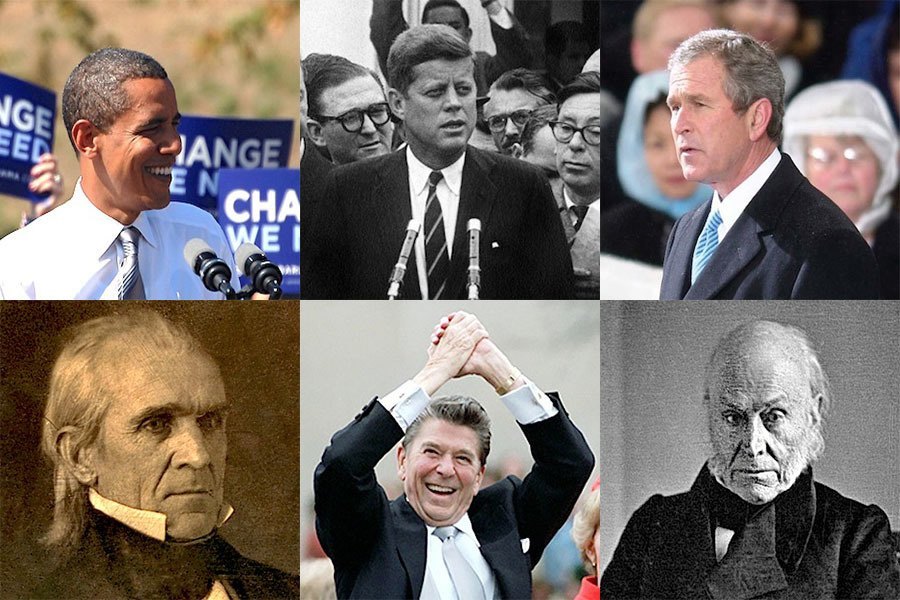
With caucusing and voting about to begin in the 2016 U.S. presidential elections, it is worth looking back at seven of the biggest upsets and surprises in the country’s history. If these historical chapters teach us anything, it is that all the experts can be wrong and that anything can happen:
1. Truman Defeats Dewey
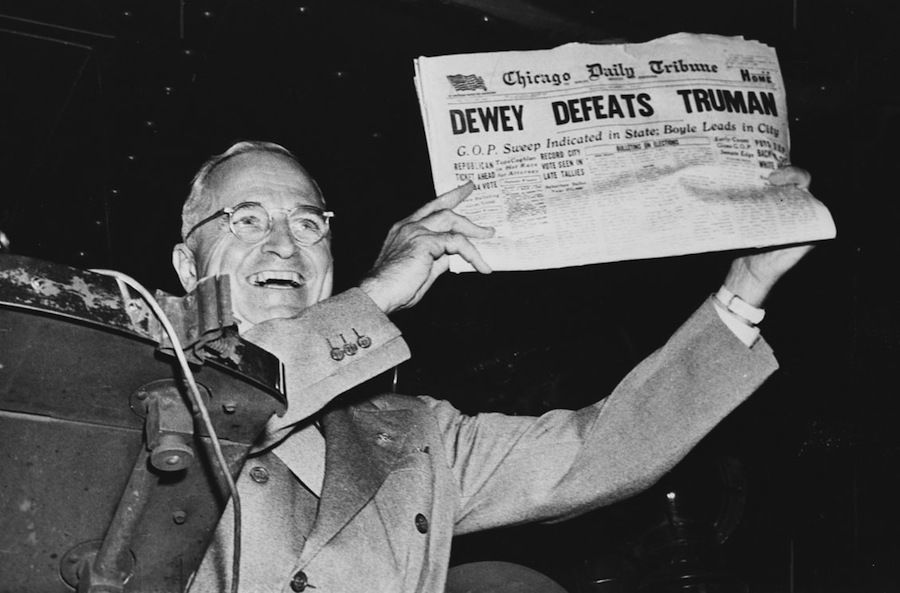
In one of the most famous photos in the history of U.S. politics, re-elected President Truman holds up a newspaper that had wrongly declared his demise. Source: National Archives
Weeks before the 1948 presidential election, the Washington Star ran a political cartoon showing a distraught President Harry Truman looking at a bulletin board full of dismal headlines about his re-election chances. In the cartoon, Truman’s opponent, Thomas Dewey, stands behind the President, smirking and saying, “What’s the use of going through with the election?”
No one thought Truman would win a second term. Dewey, the Republican governor of New York, was an incredibly popular figure, and Truman also faced open rebellion within his own Democratic party as Strom Thurmond made a run for the White House as the leader of the Dixiecrats. Despite a near national conviction that he would lose the election, Truman campaigned fiercely in the fall of 1948.
During a campaign around the country that covered nearly 22,000 miles, Truman convinced voters to give him another four years. And though the Chicago Tribune (in)famously declared that “Dewey Defeats Truman” in its morning-after headline, the count of actual votes showed President Truman had convincingly beat his New York challenger.
2. Yes We Can: Obama Stops the “Inevitable”
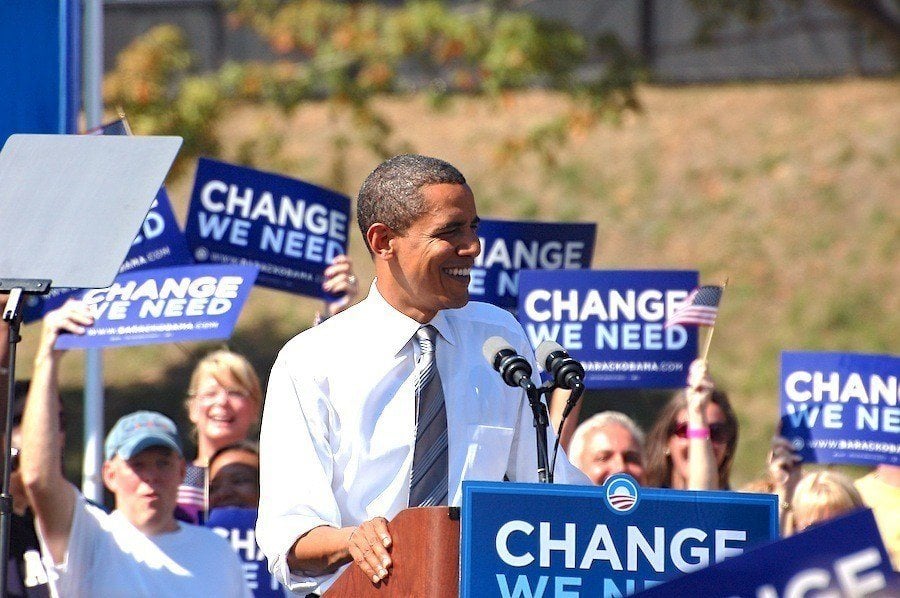
Barack Obama on the campaign trail in 2008. Source: Flickr
Hillary Clinton has been “inevitable” before. But unlike today, when she faces only two, relatively weak primary challengers, eight years ago she was up against a field that included a young senator from Illinois, named Barack Obama.
Barack Obama’s 2008 defeat of the Clinton presidential machine is one of two nomination upsets that makes our list. As a senator from New York, Clinton, then as now, was a highly regarded figure in the Democratic party in her own right, as well as the wife of a very popular former president.
Senator Obama, on the other hand, was two-years on the job in the Senate and, before the campaign, a relatively unknown figure. His talent as a campaigner as well as several key endorsements pushed him into the lead in January 2008, but it would take six months of primary voting before Clinton dropped out and endorsed Obama in June. He took his message of “Change We Can Believe In” and “Yes We Can” into the general election match-up with John McCain, won decisively, and became the first African American President of the United States.
3. Florida, Florida, Florida: Bush v. Gore
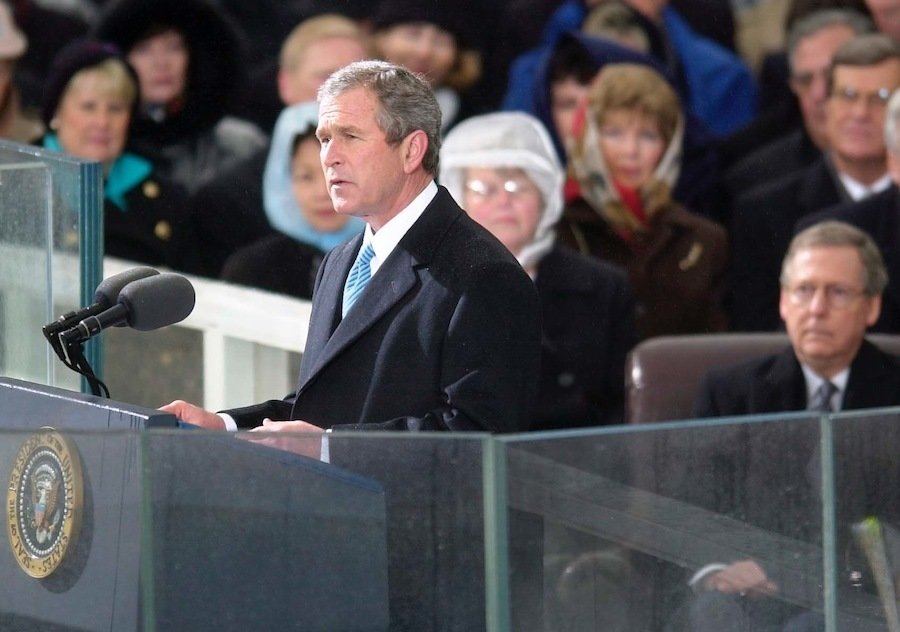
George W. Bush takes the oath of office in 2001. Source: National Defense Archives
By one important count – the popular vote – George W. Bush lost the 2000 presidential election against incumbent Vice President Al Gore. But the U.S. selects presidents based on the Electoral College, in which each state is allotted a certain number of votes based on their Congressional delegation. Though Gore received half a million more votes than Bush nationwide, he lost the Electoral College tally.
The final results came down to Florida. Early on election night, every major news station predicted a Florida victory for Gore, but they later reversed the prediction and put Florida in Bush’s column. Despite legal controversies that reached the level of the U.S. Supreme Court, Bush was declared the winner of the Sunshine State by only 537 votes. On December 12, more than a month after the election, the Supreme Court closed the matter, ending bids for further recounts of the Florida ballots and sealing Bush’s electoral win.
4. The “Corrupt Bargain” of John Quincy Adams
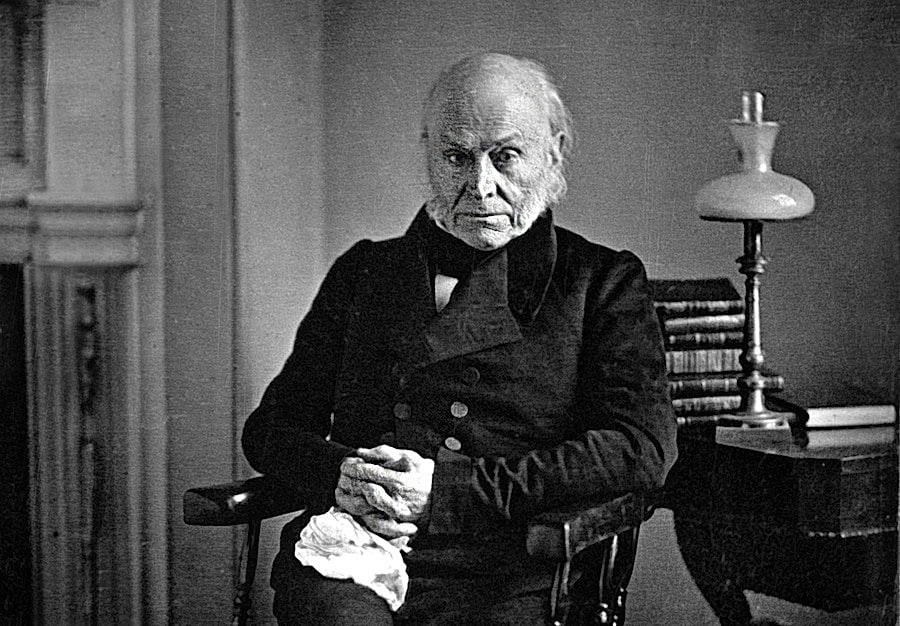
A daguerreotype of President John Quincy Adams. Source: Metropolitan Museum of Art
In the presidential election of 1824, another son of a former president had lost the popular vote. In this contest, John Quincy Adams, son of President John Adams, received only 31 percent of the popular vote, while 41 percent of voters had backed his main challenger, Andrew Jackson, with two other candidates splitting the remainder. Though he won the most popular support, Jackson did not have enough Electoral College votes to claim office.
In such cases, the Constitution gives the House of Representatives the power to vote on who should become president out of the top three candidates. The Speaker of the House, Henry Clay, who had come in fourth place as a presidential candidate, rallied support for Adams, and was later appointed by Adams as his Secretary of State.
Due to Clay’s backing and his subsequent promotion, the House voting for Adams became known as the “Corrupt Bargain.” Four years later, Andrew Jackson would defeat Adams soundly and become the country’s seventh president.
5. James Polk, the “Original Dark Horse” of 1844
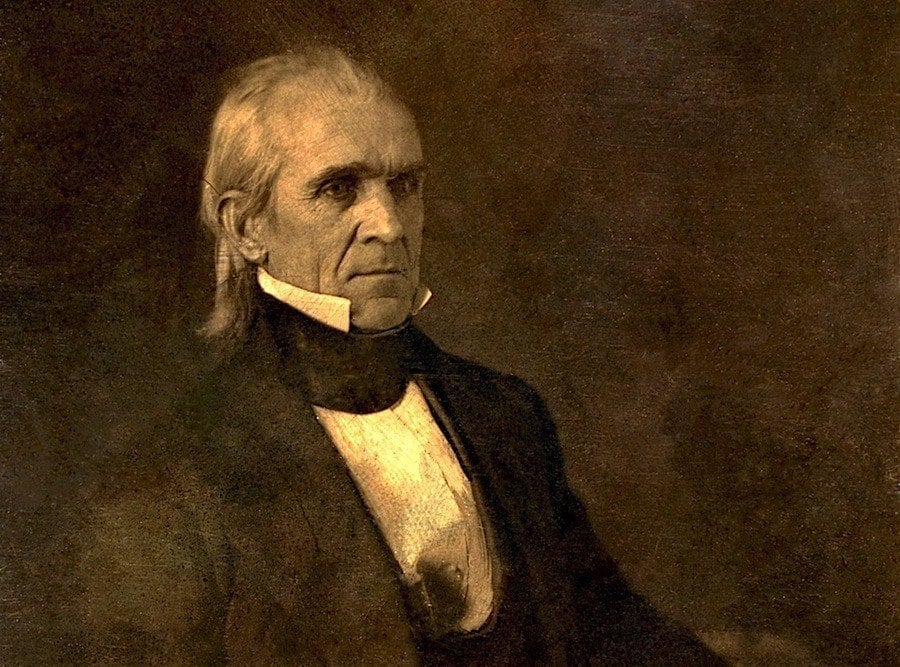
A photograph of James Polk, the eleventh U.S. president. Source: Library of Congress
The 1844 Democratic nominee for president was supposed to be Martin Van Buren. But the Republic of Texas, newly independent from Mexico, was asking to join the United States, and Van Buren’s opposition to the annexation became his undoing during the Democratic nominating convention held in Baltimore.
After the convention nearly tore itself apart, the Democrats finally chose James Polk, who had been a vice presidential favorite and a former Speaker of the House, to lead the ticket, making Polk the “original dark horse candidate,” in the words of historian Ted Widner. Polk went on to narrowly defeat the Whig party’s Henry Clay by less than 40,000 votes in the general election.
6. Ronald Reagan’s Late Surge

Ronald Reagan on his way to his 1981 presidential inauguration. Source: Reagan Library
Today, Ronald Reagan’s 1980 defeat of Jimmy Carter seems like it must have been a foregone conclusion. After all, Reagan won 44 out of 50 states and beat Carter by over 10 percent in the final popular vote tally. But only a week or so before the election, Carter was ahead.
A late October Gallop Poll put the incumbent Carter up by 8 percent among registered voters and by 3 percent among likely voters. But Reagan’s performance in that contest’s only televised debate, held on October 28th, changed voters’ minds, and the ground shifted under Carter’s feet. Despite late polls putting him behind, Reagan accomplished a dramatic victory.
7. Kennedy Knocks Out Nixon
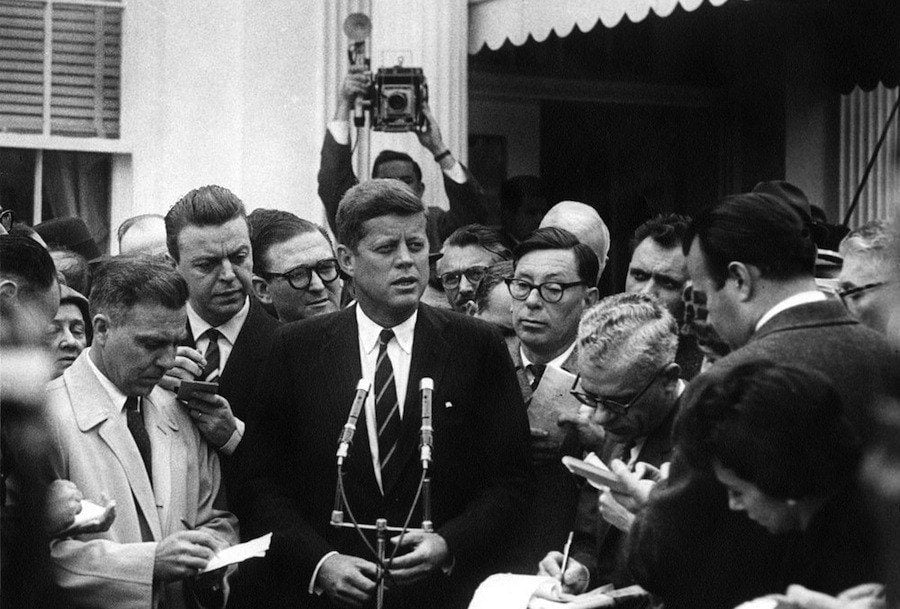
John F. Kennedy holds a press conference several days after winning the 1960 presidential election. Source: JFK Library
Vice President Richard Nixon was a likely successor to the popular Dwight Eisenhower who, after two terms in office and the adoption of the 22nd Amendment to the Constitution, was unable to run again. But Nixon’s opponent in the 1960 presidential contest was Senator John F. Kennedy, one of the most talented young politicians of the 20th century. Boosted by his performances in four debates – the first televised debates in U.S. history – Kennedy narrowly defeated Nixon.
Only 113,000 votes, or less than 0.2 percent of the total votes cast, separated the two candidates, and though Nixon took more states, Kennedy won the Electoral College count. He was the youngest president ever elected, and he had came into office as the winner of the closest U.S. presidential election of the 20th century.





